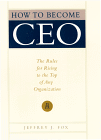
|
|
|
Vol. 73, No. 2, February
2000 |
 Previous
Page Previous
Page
Book Reviews
This Month's Featured Selections
An Estate Planners Guide to
Qualified Retirement Plan Benefits
By Louis A. Mezzullo
(Chicago, IL: ABA Real Property, Probate
and Trust Law Section, 1998).
202 pgs. $89.95.
Reviewed by Michael J. Hudson
With qualified retirement plan and IRA benefits quickly becoming
the largest asset for many individuals, knowing how to address
the multitude of planning aspects surrounding these products
has become a vital skill for attorneys, accountants, trust officers,
and insurance professionals. Although the book is created for
those engaged in estate planning on a somewhat regular basis,
it provides a good overview and reference for the non-ERISA professional
looking for a broad-based introduction to the major issues and
rules of qualified retirement plans and IRAs.
This six-chapter book begins with the
major congressional activity that changed the rules surrounding
qualified retirement plans and IRAs, showing why advising clients
of retirement benefits has become complex. Chapter one also highlights
the different types of qualified retirement plans, touching upon
tax and nontax rules and benefits of contributing to certain
plans.
Rules that govern distributions from retirement plans are
covered in chapters two and three. The text focuses on the minimum
required distribution rules and an overview of the rules regarding
when the participant dies. There is a discussion of options available
to beneficiaries and issues surrounding the naming of a designated
beneficiary. Concepts such as calculating the required minimum
distribution, how life expectancies figure into the calculation,
and differences between recalculation and nonrecalculation are
explained. This section analyzes why individuals choose different
options.
Discussion of retirement plan distributions continues with
an explanation of income taxation of benefits. Details of how
to calculate the taxable portion of distributions, how qualified
retirement plan distributions can qualify for special averaging
and capital gain treatment, and a summary of rules regarding
rollovers of funds also are provided.
Chapters four and five explain the gift and estate tax implications
of retirement plan benefits. Estate planning issues include qualifying
for the marital deduction, QTIP issues, and effective use of
disclaimers to pass along benefits. Survivor annuity rights available
to spouses of qualified plan participants are explained.
The final chapter and appendices tie together the various
topics highlighted by discussing planning options available before
retirement, at retirement, and after death for qualified retirement
plans and IRAs.
Michael Hudson, Hamline 1996, LL.M.-Taxation,
Missouri 1997, an associate in the legal department of Aid Association
for Lutherans, practices in qualified retirement plans and IRAs.
 How to Become CEO: The Rules for Rising
How to Become CEO: The Rules for Rising
to the Top of Any Organization
By Jeffrey J. Fox
(New York, NY: Hyperion, 1998).
162 pgs. $11.87.
Reviewed by Darin T. Allen
In How to Become CEO: The Rules for Rising to the Top of
Any Organization, Jeffrey Fox presents 75 "rules"
to improve work habits, surpass competitors, and maximize talent.
The ideas behind the rules are based upon the realities of business
and organizations as Fox has come to know them through his work
as a senior corporate officer and consultant. Fox is comprehensive
in his approach, and the book addresses a variety of factors
that influence the path to the CEO position, including work
habits, luck, timing, personality, competitors, talent, supporters,
and circumstances.
The book's principal weakness is
that the rules are presented without any supporting context.
Further, no allowance is made for exceptions to the rules. In
fact, Fox states in the book's introduction, "[T]he
recommendations are stated in rule or commandment form ... because
what is written is the way it is ... not the way it ought to
be." Thus, sophisticated readers will quickly recognize
the futility of becoming CEO through blind application of a black-and-white
formula for success.
Darin T. Allen is a 1998 graduate of
the U.W. Law School.
|
